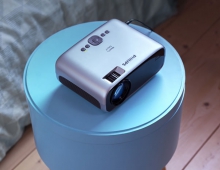
Philips launches advanced CPU for audio/video applications
Philips unveiled a new TriMedia central processing unit (CPU) core to be used in the next-generation of the Nexperia media processors.
The new super-pipelined TriMedia CPU offers over 500MHz speed with a fully
synthesizable design, enabling efficient system-on-chip (SoC) integration. The
TriMedia CPU is C-programmable and can support leading audio and video standards,
including MPEG-2, MPEG-4, DV, H.263, and DivX-5. New instructions specifically
optimize H.264 decoding. It supports video encoding into MPEG-2, MPEG-4, and DivX
formats, making it suitable for PVRs.
The ability to transcode from one video format to another supports the design of media gateway products. Furthermore, HDTV decoding with simultaneous picture-in-picture (PIP) display is enabled using a dedicated HD accelerator. The TriMedia CPU can decode HDTV video while simultaneously encoding an MPEG stream so that HDTV displays with Flash card-based PVR capability can be designed.
"Philips' super-pipelined TriMedia CPU core doubles today's performance in real-world applications, while preserving customers software investments through source-level compatibility with existing family members," said Chris Day, senior director of marketing, media processing, Philips Semiconductors.
The ability to transcode from one video format to another supports the design of media gateway products. Furthermore, HDTV decoding with simultaneous picture-in-picture (PIP) display is enabled using a dedicated HD accelerator. The TriMedia CPU can decode HDTV video while simultaneously encoding an MPEG stream so that HDTV displays with Flash card-based PVR capability can be designed.
"Philips' super-pipelined TriMedia CPU core doubles today's performance in real-world applications, while preserving customers software investments through source-level compatibility with existing family members," said Chris Day, senior director of marketing, media processing, Philips Semiconductors.


















